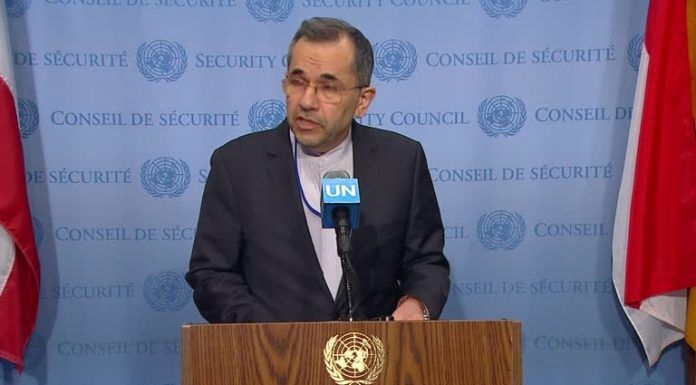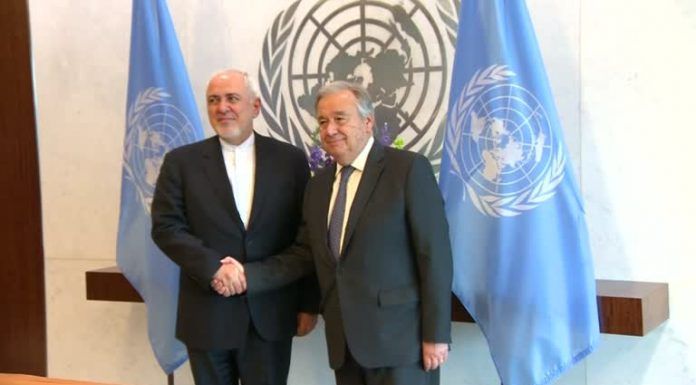By Michelle Nichols
UNITED NATIONS, Aug 6 (Reuters) – Iran asked U.N. Secretary-General Antonio Guterres on Tuesday to push back against the United States after it imposed sanctions on Iranian Foreign Minister Mohammad Javad Zarif, describing the move as a “a dangerous precedent.”
In a letter to Guterres, Iran’s U.N. Ambassador Majid Takht Ravanchi accused the United States of a “brazen violation of the fundamental principles of international law” and urged the international community to condemn the U.S. behavior.
“Coercing nations into complying with the United States’ illegal demands threatens multilateralism, as the foundation of international relations, and sets a dangerous precedent, paving the way for those who aspire to rather divide, not unite, nations,” he wrote.
Ravanchi asked Guterres to “to play your active role in preserving the integrity of the United Nations in line with your responsibility to counter the current dangerous trend” but it is not clear what Guterres could do in response to the Iranians.
U.N. spokesman Stephane Dujarric declined to comment on the letter. When asked about the U.S. sanctioning of Zarif, Guterres told reporters on Thursday: “When I ask for maximum restraint, I ask for maximum restraint at all levels.”
The U.S. sanctions imposed on Zarif last week would block any property or interests he has in the United States, but the foreign minister said he had none.
“The illegal imposition of sanctions on the Minister of Foreign Affairs of the Islamic Republic of Iran also violates the principle of sovereign equality of States,” Ravanchi said.
Longtime U.S.-Iran strains have worsened since U.S. President Donald Trump last year quit a 2015 international agreement to curb Iran’s nuclear program in return for sanctions relief. Zarif was a critical figure in the nuclear deal.
The United States also imposed unusually tight travel restrictions on Zarif when he visited New York last month to speak at a U.N. meeting. He was only able to travel between the United Nations, the Iranian U.N. mission, the Iranian U.N. ambassador’s residence and John F. Kennedy airport.
The sanctions on Zarif were imposed two weeks after he visited New York. Zarif posted on Twitter on Monday that he believed the United States was not interested in talks with Tehran and instead wanted Iran’s submission.
(Reporting by Michelle Nichols Editing by Alistair Bell)



